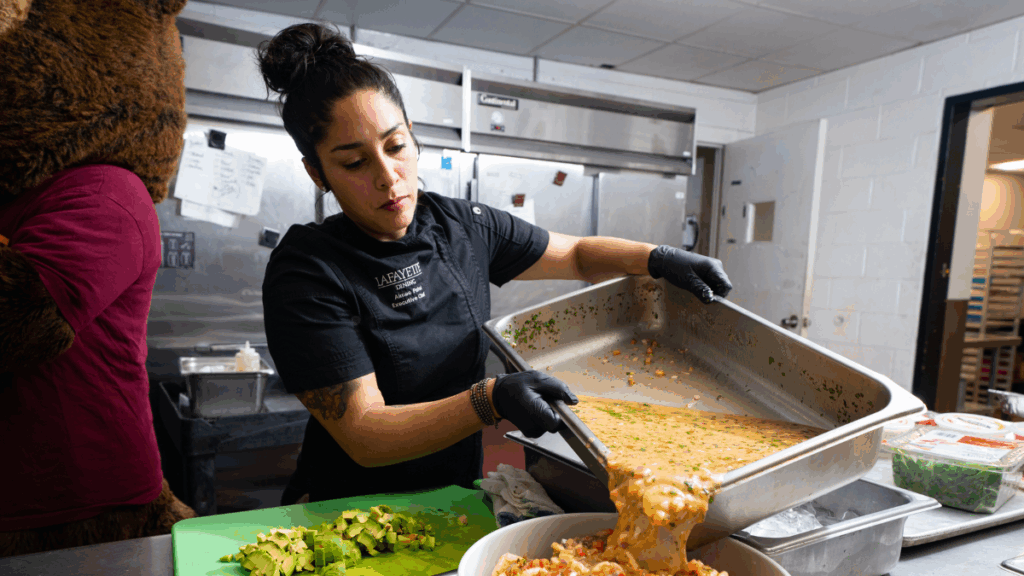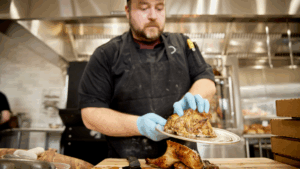In honor of Women’s History Month, we’re highlighting one of our dynamic female chefs, Aimee Patel.

Can you share your journey and experience as a woman in the hospitality industry?
Aimee: I started professionally cooking in fine dining kitchens during my first year of Culinary School back in 2005. I went to The Restaurant School at Walnut Hill College in West Philadelphia. I didn’t know what to expect, as all my previous experience in kitchens was cafes and delis and small restaurants in the Poconos. But as soon as I felt the adrenaline of working in such a prestigious restaurant, I instantly fell in love with my profession. I worked with many different chefs and line cooks who all taught me so much and made me the chef I am today. I had to learn how to pull my weight quickly and to always try and have the sharpest knife — the best knife cuts the cleanest station — and the best-looking plates on the pass. There were only a few times where my gender would intimidate a coworker, but there were so many teammates of mine that stood up for me like my family would. The restaurants I worked in really brought a sense of family to the workplace. I was blessed to work in restaurants where me being a woman in the hospitality industry was normal and admirable.
International Women’s Month is a time to celebrate achievements. Can you highlight a particular success or accomplishment during your time with Parkhurst that you are especially proud of?
Aimee: While I’ve only been with the company for about a year and a half, I would say that my proudest achievement would have to be the team that we have developed and the progress I have seen since starting at Lafayette College with Parkhurst. My Executive Sous Chef is female, and I would love to be able to see her take on a role as an Executive Chef.
In the context of gender diversity and inclusion, what steps do you believe businesses can take to create more supportive environments for women in leadership roles?
Aimee: Some steps that businesses can take to create more supportive environments for women and leadership roles could possibly be to establish mentorship and sponsorship programs specifically for women. This could be from women in senior leadership roles that could provide guidance and support necessary for women to advance in their careers; they could help to train women who are beginning to step into leadership roles for the first time. Also, definitely include flexible work arrangements/family leave policies. I think it helps to create a healthy work-life balance when these benefits are offered and can really help a business to retain leaders that are women and have the experience necessary for the job.
As a woman in a leadership position, have you observed changes or shifts in the perception of women in business over the course of your career?
Aimee: I think it has evolved significantly where it’s becoming more frequent to see women in senior leadership roles because we are being treated equally and given the same chances that men might have received easily in the past. I also see women bringing different leadership styles to the table. I think when women were first given the opportunity to be in a leadership role, they might have expected them to adopt traditionally masculine traits, but now we see more qualities such as empathy, collaboration, and emotional intelligence, which are just as effective as traditional traits in leading teams and organizations.




